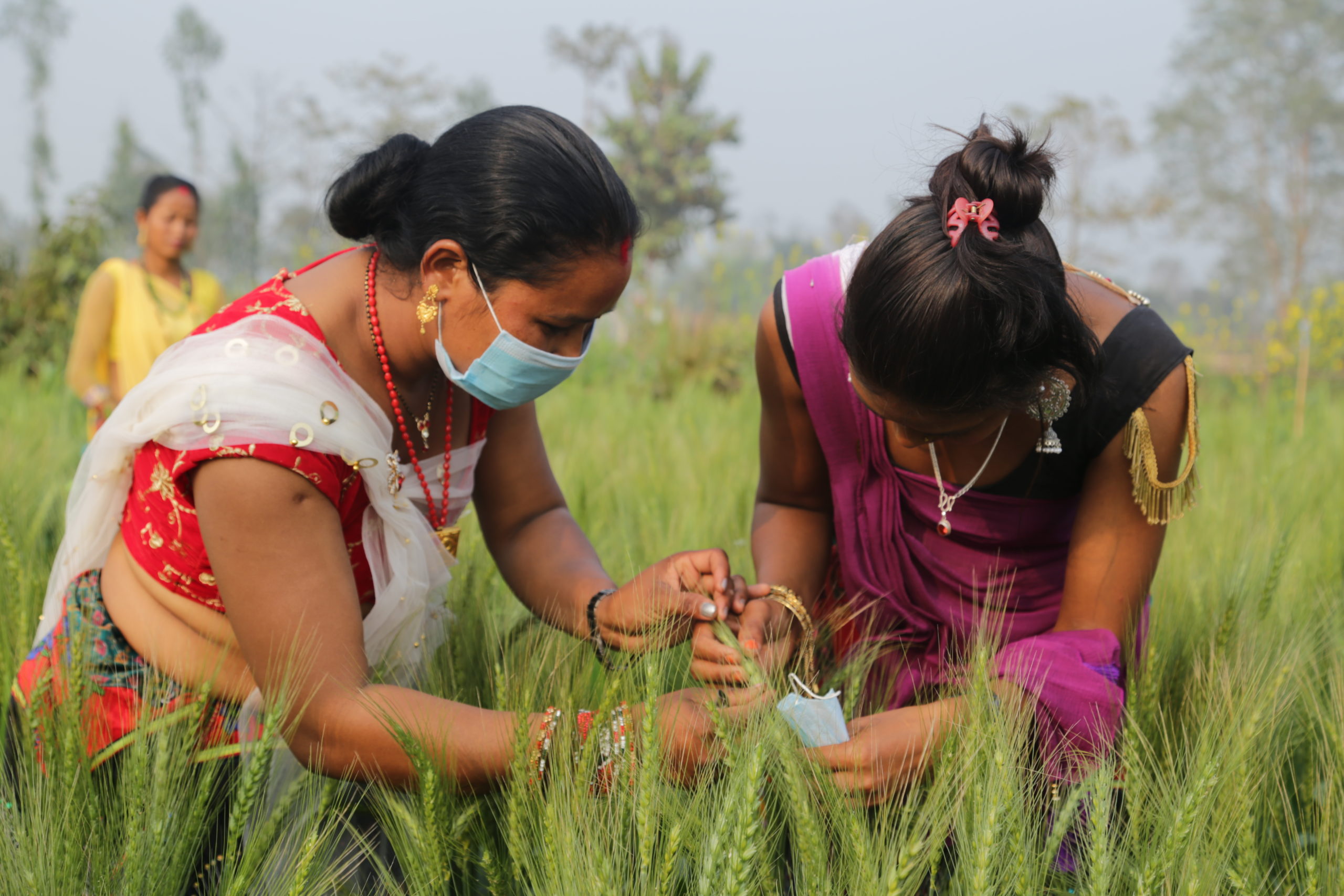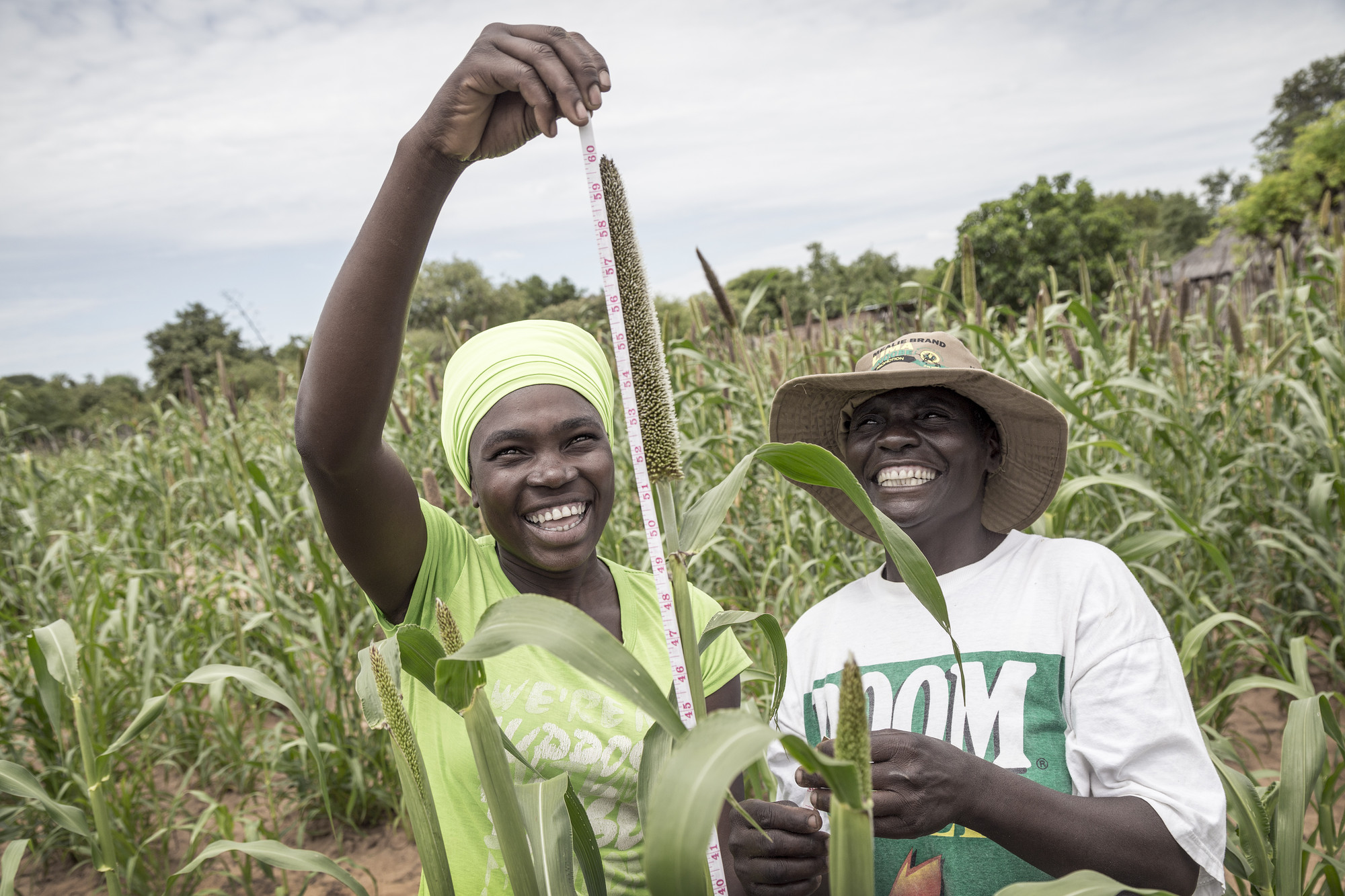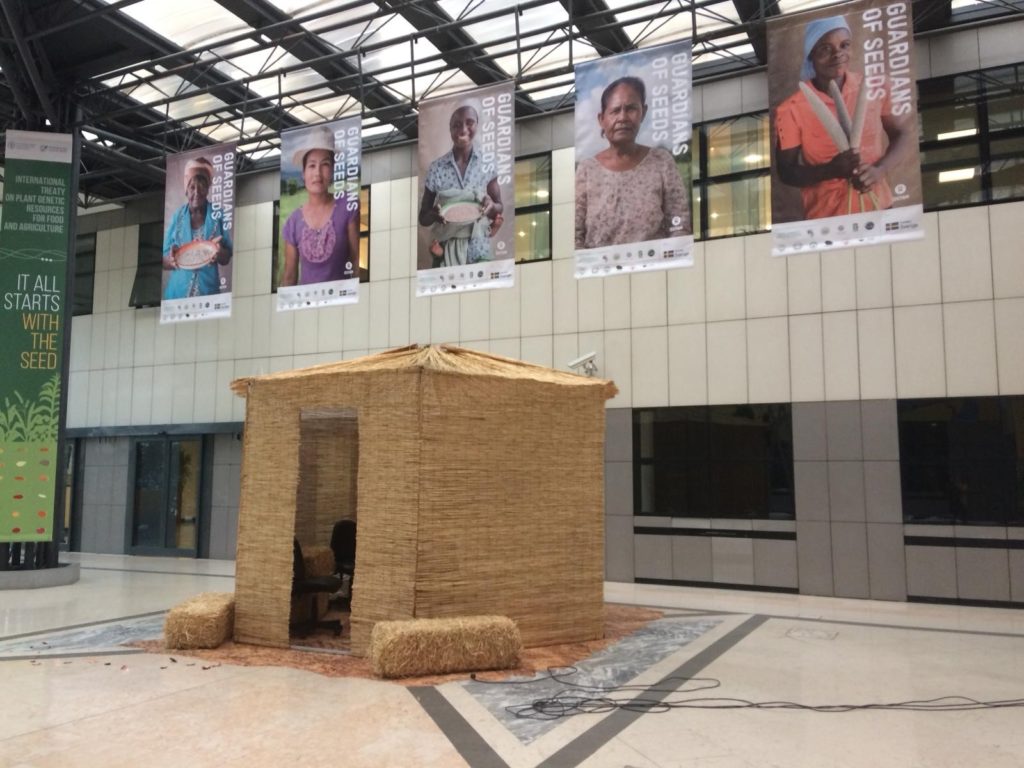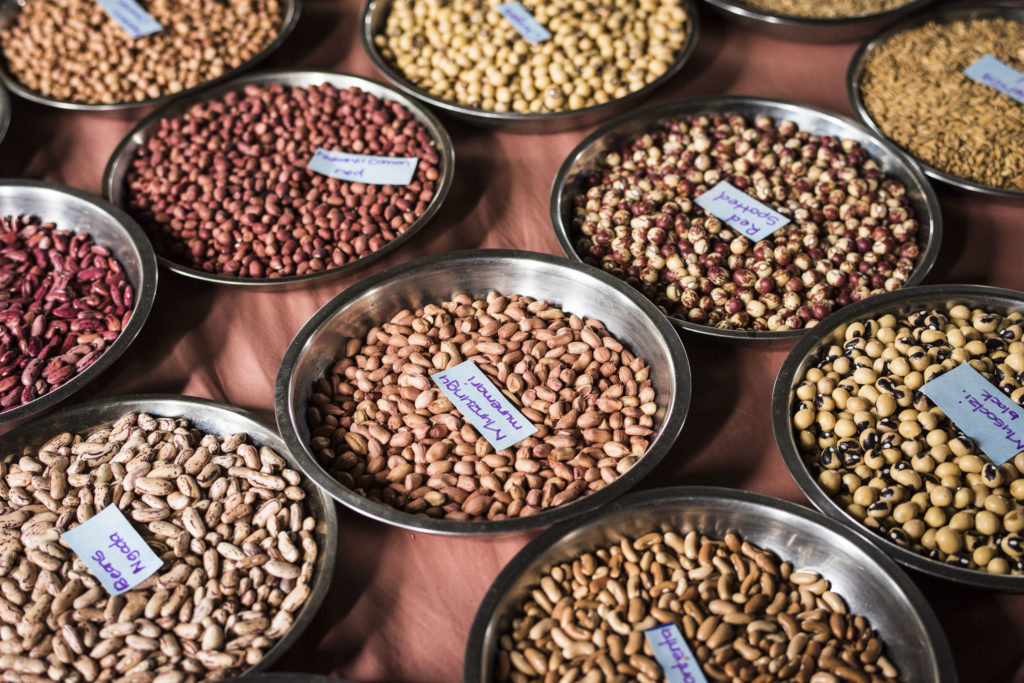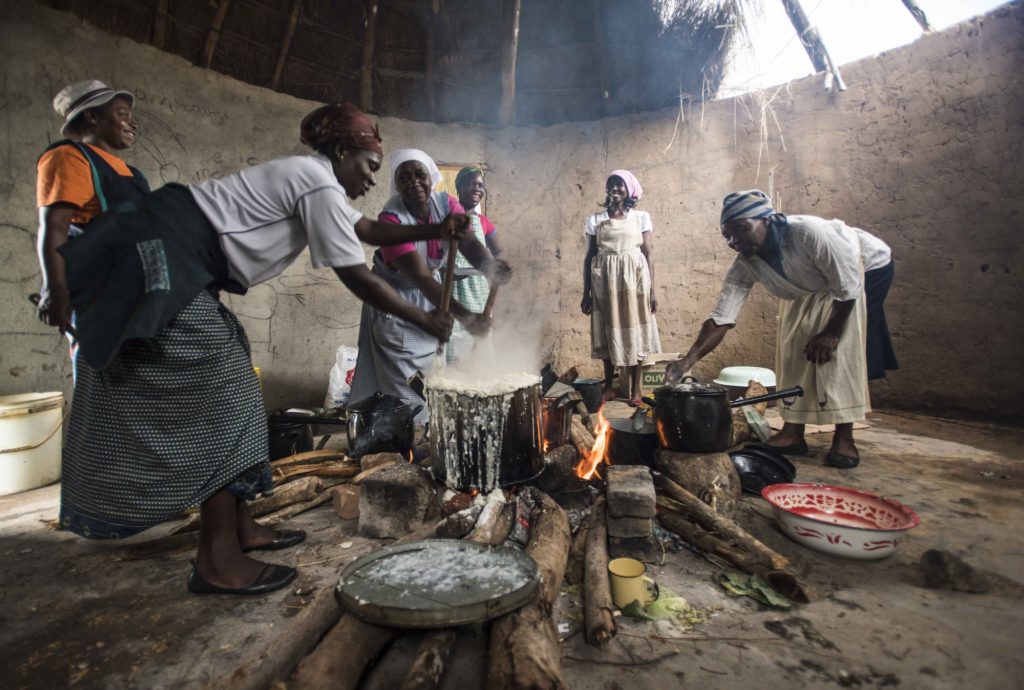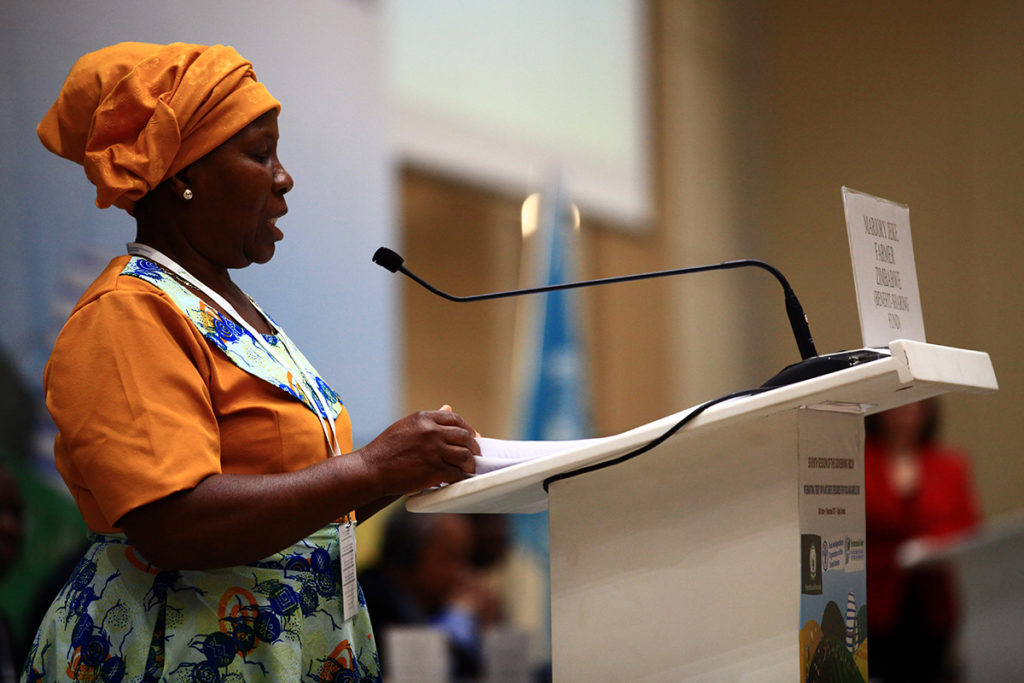Farmers all over the world are experiencing climate change – ranging from extreme droughts to melting icecaps and flooding – drastically changing weather patterns and directly affecting the availability and quality of food.
An important way to adapt is to grow more diverse varieties, better adapted for variable and evolving climate situations. However, there is a limit to local adaptation because of insufficient locally available seeds. If farmers are to continue their crucial role in adapting crops and varieties to their needs and contributing to national and global food systems, they need access to new genetic diversity from distant farming communities, breeding institutions and formal gene banks.
Establishing farmer field schools on plant genetic resources
SD=HS supports smallholder farmers to maintain and further develop crop diversity to improve food and nutrition security and to adapt to changing market forces and climate change. SD=HS has established over 750 self-sustaining Farmer Field Schools (FFS) on plant genetic resources, where farmers work together to select, adapt and develop new plant varieties that better fit their needs and preferences. FFS have been essential in facilitating access to novel crops and varieties with diverse traits and kinds of resistance for farmers to select from.
Transforming power relations
Through the FFS, farmers have improved more than 400 varieties of food and cash crops as a coping strategy for climate variability. Through specific modules on gender and youth, the Farmer Field School methodology seeks to transform power relations at different levels and strengthen the voice of women and youth in decisions on the use and conservation of crop and variety diversity. Working as a global network, SD=HS shares innovations in the FFS approach across countries, addressing challenges related to climate change adaptation, disaster risk management, female leadership and the future of rural youth. Program partners work on complementary agro-ecological approaches to improving smallholder crop production that contribute to the wider agenda on food security and rural development.
Our impact
- Our work has helped start and maintain hundreds of Farmer Field Schools
- Thousands of farmers have helped create new varieties
- Tens of thousands of farmers have benefitted with new seeds

